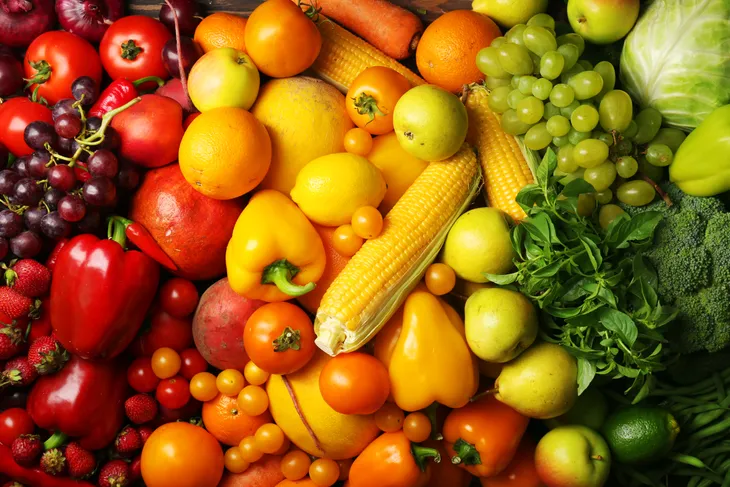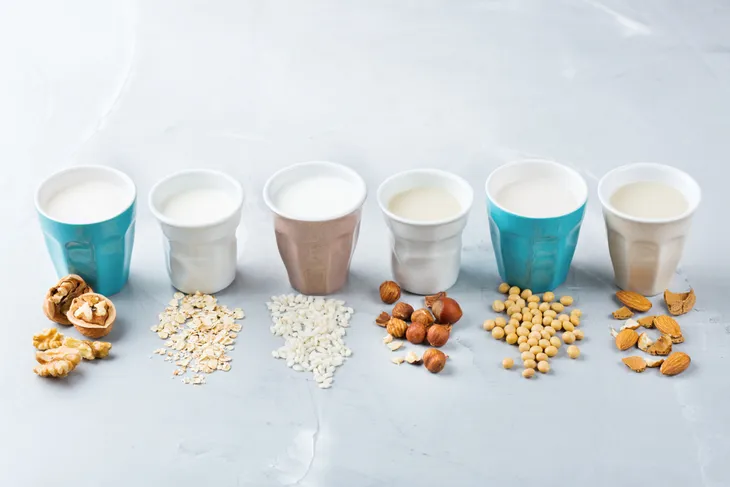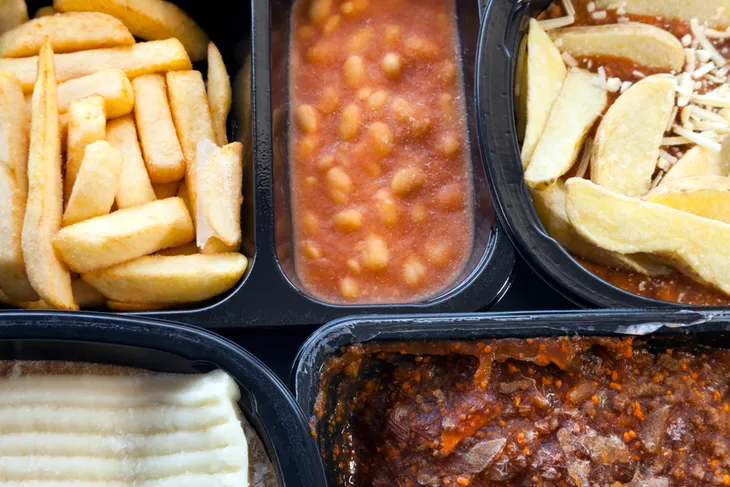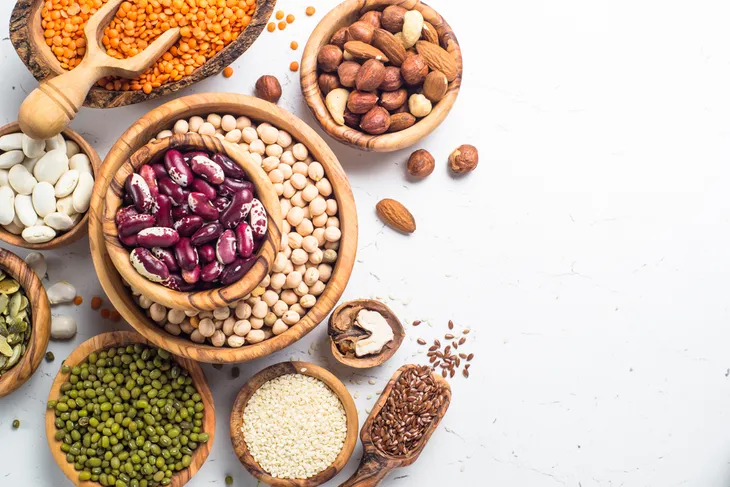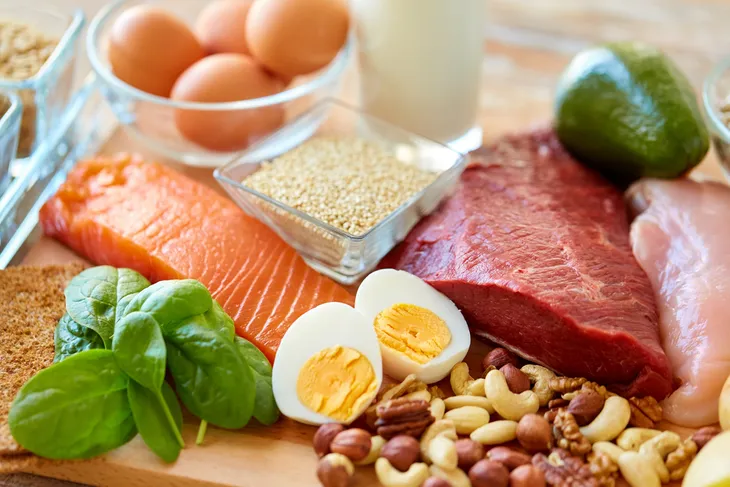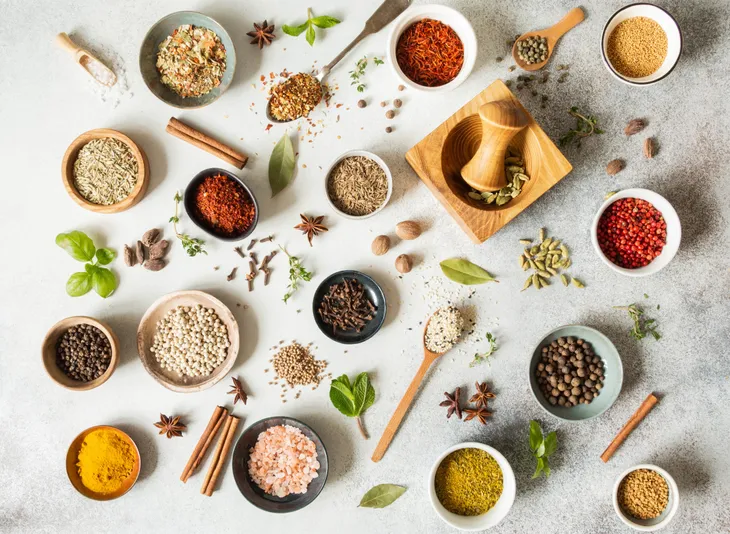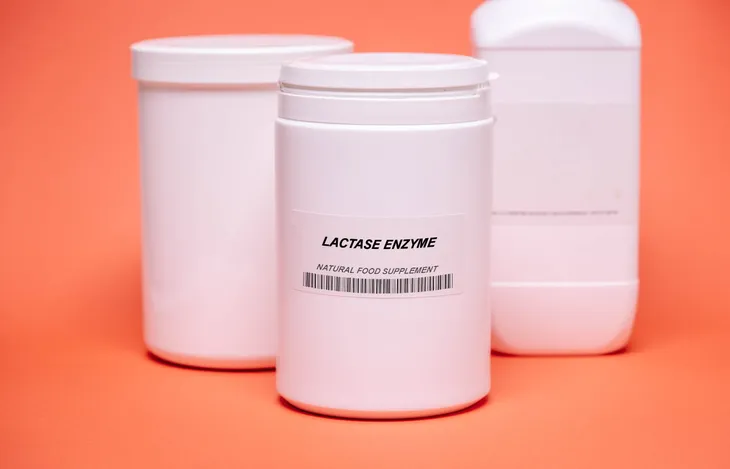- Lactose-free diets can reduce digestive symptoms in people who are lactose intolerant.
- Lactose is a sugar found in milk and some dairy products, as well as many processed foods.
- For those on a lactose-free diet, whole grains, fruits, vegetables, and lean protein are good foods to eat.
- Lactose-free dairy products are available in most grocery stores for those who can’t consume the enzyme.
If you’ve been diagnosed with lactose intolerance, your doctor will likely suggest that you make changes to your diet. Following their advice and sticking to a lactose-free diet may help reduce symptoms, such as diarrhea and bloating.
Knowing which foods fit a lactose-free diet is the first step toward successfully controlling the symptoms of lactose intolerance. Check out the foods to eat and avoid below, and talk to your doctor for more advice.
Avoid: Cow’s Milk
Before delving into what you should eat and avoid on a lactose-free diet, it’s important to understand that being lactose intolerant isn’t the same as having a milk allergy. Most people with lactose intolerance can digest small amounts of lactose without experiencing symptoms.
The U.S. National Institute of Diabetes and Digestive and Kidney Diseases states that the average person with lactose intolerance can digest up to 12-grams of lactose per meal. This is the amount of lactose found in 8-ounces (29.5 milliliters) of whole milk. However, the threshold for the digestion of products varies from person to person, so you may wish to avoid drinking milk entirely while on a lactose-free diet.
Eat: Lactose-Free Milk
Lactose-free milk is cow’s milk that undergoes a process that makes it easier for people to digest. Dairies may completely filter out lactose, creating lactose-free milk that tastes much like regular milk.
Other dairies break down the lactose sugar found in cow’s milk to help make it easier to digest. These products contain simple sugars that may give lactose-free milk a slightly sweeter taste. Both types of lactose-free milk are unlikely to trigger symptoms of lactose intolerance and contain the calcium, protein, vitamin D and vitamin B found in regular cow’s milk.
Avoid: Dairy Products
Because they’re made from milk, conventional dairy products contain lactose. These foods include ice cream, yogurt, cream, cheese, butter, yogurt, cream cheese, cottage cheese, and sour cream.
Levels of lactose in dairy products vary. Generally, aged cheeses, such as Parmesan and cheddar, ricotta, cream cheese, and cottage cheese, contain less lactose than other dairy products, so some people may be able to tolerate them in small amounts. Lactose-free yogurt, ice cream, and other dairy products are also available for people who need to follow a lactose-free diet.
Eat: Fruits and Vegetables
Fruits and vegetables don’t contain lactose and are packed with vitamins, minerals and other nutrients your body needs to function at its best. Leafy greens, such as spinach, bok choy, and kale, are good sources of calcium and may help people who need to avoid dairy products reduce their risk of calcium deficiency.
Broccoli and calcium-fortified orange juice are also rich in calcium. When cooking vegetables, use seasonings and oils rather than butter to keep your meal lactose-free.
Avoid: Breads and Baked Goods
Breads and baked goods often contain milk and may cause digestive symptoms, but that doesn’t mean you have to give up sandwiches for good. The key is to read ingredient listings carefully and avoid products that contain milk, powdered milk, or dry milk solids.
Vegan bread is typically a good choice because manufacturers leave out milk products to suit vegan diets. Some gluten-free breads are also lactose-free, and you can find specialty lactose or dairy-free breads at some grocery stores and bakeries.
Eat: Milk Alternatives
Cow’s milk alternatives are generally suitable for a lactose-free diet. You can drink them on their own and use them as substitutes for cow’s milk in some recipes.
Soy milk is one of the most popular cow’s milk alternatives, and it has a smooth, slightly thick consistency. Nut-based milks, such as almond milk, cashew milk, hazelnut milk, and peanut milk, are also good alternatives and tend to have a subtle nutty taste that can enhance the taste of coffee and breakfast cereal. Other milk alternatives include rice milk, coconut-based milk, and oat milk, which all have a slightly sweet flavor.
Avoid: Processed Foods
The American Dietetics Association advises everyone to eat heavily processed foods only in moderation and being choosy about which ones you eat is especially important if you’re on a lactose-free diet. Breakfast cereals, canned soups, salad dressings, flavored potato chips, instant mashed potatoes, and frozen and prepared meals may all contain milk.
Identifying milk on ingredients listings can also be tricky because often these products contain milk derivatives. Generally, steer clear of processed foods that contain milk, whey, curds, milk by-products, nonfat dry milk powder, and dry milk solids.
Eat: Whole Grains, Beans, and Legumes
The U.S. Department of Agriculture recommends that adults fill one-fourth of their dinner plates with whole grains at every meal to provide their bodies with fiber, vitamins, and minerals. These foods include barley, brown rice, buckwheat, bulgur, farro, millet, oatmeal, quinoa, spelt, and wild rice.
Provided you prepare them without dairy products, such as butter or milk, whole grains are a good fit for a lactose-free diet. You can also enjoy legumes and beans, including lentils, black-eyed peas, fava beans, edamame, and garbanzo beans.
Avoid: Whey Protein Bars, Powders, and Drinks
Protein powders, bars, and drinks are popular among fitness enthusiasts and athletes. Many of these products are made from whey, a protein produced during the process of turning cheese into milk. Because it’s a dairy by-product, whey contains lactose and can spark symptoms of lactose intolerance.
If you hate to give up your daily protein shake, explore other options. You can find pea, brown rice, soy, hemp, and egg white protein powders and meal replacement products online and in some health food stores.
Eat: Lean Protein
Lean proteins are foods that contain large amounts of protein but minimal fat. They don’t contain lactose and are a good choice for a lactose-free diet. Examples include lean cuts of beef, pork, and lamb as well as chicken, turkey, and eggs.
Fish and seafood also fall under the category of healthy lean proteins. For vegetarians, nuts, seeds, beans, peas, and lentils are typically the primary sources of lean protein. The USDA advises that adults fill one-quarter of their plates with lean protein at each meal.
Avoid: Non-dairy Creamers, Powders, and Toppings
You may be surprised to see non-dairy creamers, powders, and toppings on the list under foods to avoid on a lactose-free diet. After all, the name suggests they’re free of dairy products, but that’s actually misleading.
Non-dairy foods are made from a milk protein called caseinate instead of cream or milk. Although non-dairy creamers, toppings, and powders usually contain less lactose than other dairy products, they still may cause symptoms of lactose intolerance in some people.
Eat: Spices, Herbs, and Healthy Fats
Butter is normally not recommended for a lactose-free diet because it’s a dairy product. To enhance the taste of foods without butter, try using herbs and spices. For example, dill or tarragon can pair well with roasted vegetables, and garlic powder can enhance the taste of mashed potatoes.
For cooking, substitute small amounts of healthy monounsaturated and polyunsaturated fats, such as olive oil, corn oil, avocado oil, canola oil, and oils derived from nuts, including walnut and peanut oils.
Consider: Lactase Supplements
Some people with lactose intolerance are able to add more dairy products to their diets if they take a supplement called lactase. Lactase supplements contain the enzyme your body needs to digest lactose properly.
If you have lactose intolerance, your body may not produce enough lactase on its own. Taking a supplement may boost your natural levels of the enzyme and make it easier for your digestive system to process dairy products, according to the NIDDK. However, you should consult your doctor before adding lactase or any other supplement to your diet.




